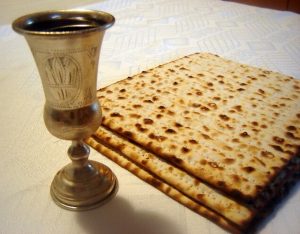 Again this week as last, our first reading today is from the First Book of Kings and like last week’s, it is a prayer spoken by King Solomon. Last week, it was a private prayer spoken in a dream late at night. Today, it is a public prayer. As long as it was, this reading is just a small part of the dedicatory prayer that Solomon offered when the Temple was finished and consecrated. In it, Solomon asks an important question, “[W]ill God indeed dwell on the earth?”[1] More specifically, Solomon is asking if God will dwell in the Temple, and the wise king immediately answers his own question: “[H]eaven and the highest heaven cannot contain you, much less this house that I have built!”[2]
Again this week as last, our first reading today is from the First Book of Kings and like last week’s, it is a prayer spoken by King Solomon. Last week, it was a private prayer spoken in a dream late at night. Today, it is a public prayer. As long as it was, this reading is just a small part of the dedicatory prayer that Solomon offered when the Temple was finished and consecrated. In it, Solomon asks an important question, “[W]ill God indeed dwell on the earth?”[1] More specifically, Solomon is asking if God will dwell in the Temple, and the wise king immediately answers his own question: “[H]eaven and the highest heaven cannot contain you, much less this house that I have built!”[2]
The building of the Temple in 957 BCE[3] marked a very significant change in the Jewish religion. Well, really, let’s not call it the Jewish religion because it wasn’t that, yet. Let’s just say, “The religion of the people of Israel.” These people were not, though we often imagine them to be, strict monotheists. Even in this prayer, Solomon leaves open the question of whether there might be gods other than their God: “O Lord, God of Israel, there is no God like you in heaven above or on earth beneath.”[4] There might be other gods, lesser gods perhaps, demigods, or even demons, part of a heavenly pantheon of gods, but this God, the God of the People of Israel is greater than any of those others.
 Our gospel reading this morning is taken from the Fourth Gospel, the Gospel according to John, which I’m sure you know is the sort of odd-man-out of the gospels. The other three gospels, the so-called Synoptic Gospels (a Greek word meaning that they see the Jesus story in the same way), pretty much agree and present the events of Jesus’ ministry in the same order over a one-year time-line. John tells the story in a completely different way, with a three-year time span and a different order of events.
Our gospel reading this morning is taken from the Fourth Gospel, the Gospel according to John, which I’m sure you know is the sort of odd-man-out of the gospels. The other three gospels, the so-called Synoptic Gospels (a Greek word meaning that they see the Jesus story in the same way), pretty much agree and present the events of Jesus’ ministry in the same order over a one-year time-line. John tells the story in a completely different way, with a three-year time span and a different order of events.  When I was a sophomore in college, I lived in a dormitory suite with nine other guys: six bedrooms, two sitting rooms, and a large locker-room style bathroom. About mid-way through the first semester, one of our number, a 3rd-year biochemistry major, suggested that set up a small brewery in one of the sitting rooms. We all read up on how to make beer and thought it was a great idea; so we helped him do it. It takes three to four weeks to make a batch of beer, so over the next few months we made quite a bit of beer.
When I was a sophomore in college, I lived in a dormitory suite with nine other guys: six bedrooms, two sitting rooms, and a large locker-room style bathroom. About mid-way through the first semester, one of our number, a 3rd-year biochemistry major, suggested that set up a small brewery in one of the sitting rooms. We all read up on how to make beer and thought it was a great idea; so we helped him do it. It takes three to four weeks to make a batch of beer, so over the next few months we made quite a bit of beer.  Lenten Journal, Day 30
Lenten Journal, Day 30 At the end of our gospel lesson this morning, Jesus said to the crowd, “It is my Father who gives you the true bread from heaven. For the bread of God is that which comes down from heaven and gives life to the world.” They said to him, “Sir, give us this bread always.” Jesus answered, “I am the bread of life. Whoever comes to me will never be hungry, and whoever believes in me will never be thirsty.”
At the end of our gospel lesson this morning, Jesus said to the crowd, “It is my Father who gives you the true bread from heaven. For the bread of God is that which comes down from heaven and gives life to the world.” They said to him, “Sir, give us this bread always.” Jesus answered, “I am the bread of life. Whoever comes to me will never be hungry, and whoever believes in me will never be thirsty.”

